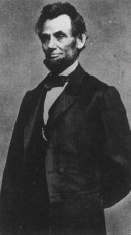Southern Capitalists
The Fred W. Morrison Series in Southern Studies
1986 The University of North Carolina Press
All rights reserved
Manufactured in the United States of America
Library of Congress Cataloging-in-Publication Data
Shore, Laurence.
Southern capitalists.
(The Fred W. Morrison series in southern studies)
Bibliography: p.
Includes index.
I. SlaverySouthern States. 2. Southern States Economic conditions. 3. Capitalists and financiers Southern StatesHistory19th century. 4. Southern StatesHistory1775-1865. 5. Southern States History1865-1877. I. Tide. II. Series.
E449.S56 1986 975 .41 86-1395
ISBN 0-8078-1702-3
To my parents,
Rita F. Shore
Joseph N. Shore
Contents
Acknowledgments
This book, in an earlier life, was a dissertation that culminated my graduate study in American history at The Johns Hopkins University. Several scholars at Johns Hopkins read and criticized portions of the dissertation: Professors Kenneth S. Lynn, J. G. A. Pocock, Jack P. Greene, and Ronald G. Walters. Professors Louis Galambos and Sidney W. Mintz not only read the entire dissertation but served on my doctoral defense committee; throughout my graduate career they were dedicated and exciting teachers. My debt to them is substantial. Professor Willie Lee Rose gave me the opportunity to study at Johns Hopkins, and her example as a scholar continues to shape my approach to research and writing. Mr. Peter K. Kafer, a fellow student, provided and continues to provide especial intellectual and emotional comradeship.
At a crucial stage in my research the American Antiquarian Society awarded me a Fred Harris Daniels fellowship, which carried intellectual and financial aid that I recall with fondness. I would like to thank the staff of the AAS as well as the staffs of the Southern Historical Collection, Mississippi Department of Archives and History, Alabama Department of Archives and History, Library of Congress (Rare Book Room, Newspaper and Periodical Division, Manuscripts Division), and the Milton S. Eisenhower Library Special Collections and Interlibrary Loan Divisions.
Four of my colleagues at Queens University read and criticized, to my great benefit, either portions of or this entire manuscript: Professors Klaus J. Hansen, George A. Rawlyk, Robert W. Malcolmson, and Bryan Palmer. I am also grateful to Professors Joel R. Williamson and Frank W. Ryan of The University of North Carolina at Chapel Hill, Professor Michael OBrien of the University of Arkansas, Professor Merton Dillon of The Ohio State University, and Mr. Joseph Herzenberg for their commentaries on various chapters.
Two readers for the University of North Carolina Press offered superb suggestions for improving the manuscript. I am especially indebted to Professor Paul D. Escott, University of North Carolina at Charlotte (and one of the press readers), for his report. I should also note that the title of this book is Professor Escotts contribution, and is a vast improvement over what I had earlier submitted.
A grant from the Queens University Advisory Research Committee helped fund the typing of the manuscipt, which was superbly performed by Ms. Linda D. Freeman.
I find it difficult to express my deep gratitude to the four persons who have had most to do with the emergence of this book. Professor William W. Freehling, my graduate advisor, has been the major intellectual influence in my life since September 1977. I alone am responsible for this books shortcomings, but without Professor Freehlings guidance the book would not have been possible at all. Whenever I sit down to write, he is the reader over my shoulder whom I most want to reach and satisfy; even if I fail in that effort, he has made me believe that the effort is worth making.
At a time when attending graduate school in the humanities was distinctly unfashionable, my parents unflaggingly supported my decision. They helped with every research trip I took.
Finally, Shalini Gupta contributed to this book in so many ways that I cannot begin to enumerate them. She has been my closest and most constant critic; without the example of her intellectual and moral toughness I surely would have failed to complete Southern Capitalists.
Preface
Southern history as tragedy has had a long run. Whether Tom Watson or Thomas Sutpen is made to exemplify the regions history, action culminates in failure. Driven by superhuman purpose and endowed with impressive style, the leader and his region nevertheless embody a fatal flaw. As racism devastates their purpose and corrupts their style, they become inexorably isolated. We experience a catharsis of pity and fear as we witness a Promethean decay, decline, and finally death.
It is good theater. For certain leaders whose careers actually correspond to a tragic rhythm, it is good history. But when one considers the Souths white leadership during the period that spans secession and Reconstruction, a comic rather than tragic plot design is more appropriate. Opportunistic Titans, scornful of Promethean suffering and eager to persist as public leaders, rise from defeat to renew operations in a different political and economic setting. Incorporation into the national mainstream is the leaders profitable fate. By transforming their ideology, they save their influence.
This comedy is almost completely dark: the slaveholding capitalist, no hero to us, plays the heros role. The slaveholders fall evokes little sympathy. His reemergence reflects not a moral reordering of Southern society but a harmonizing of capitalistic rhetoric between North and South.
The final irony, however, is at the heros expense. In achieving a postbel-lum victory, the hero loses an old identity that twentieth-century Southern intellectuals have endowed with new nobility. The very word that was anathema to nineteenth-century leadersagrarianbecomes exalted in the lexicon of Donald Davidson, John Crowe Ransom, and other contributors to Ill Take My Stand, a 1930 cry against industrial civilization. The economic orientation that Southern leaders adopted in the postbellum era becomes condemned as soulless accommodation to that civilization. Most important, Ill Take My Stand writers recover an emphasis on the value of leisure that postbellum leaders abjured. Thus, the tables are turned on master table-turners.
This irony stands mostly outside the present studys scope; the story is complex enough without it. Our hero, a group of politicians and ideologists, relies heavily upon rhetoric to develop protective coloration while its societys institutional bulwarkslaverydisintegrates. Shedding old and inconsistent guises, members of the Southern ruling elite direct a shift in regional perspective. Values formerly defining Southern distinctiveness are deemphasized. Such reorientation is, these leaders believe, necessary to their survival; to justify their continued right to rule, they must fully adopt the nations public grammar. Antebellum leaders attempt to show that they still direct the path to success for white men in a changed, postbellum social context.
The crucial point is how little these changed leaders had to change. If they had truly been reactionary precapitalists," antebellum leaders would have found it extraordinarily difficult to transform themselves in such a brief period of time. But the antebellum ruling elite was not precapitalist; its anti-free-labor rhetoric fitted uncomfortably with capitalistic attitudes and practices. Because they were not so different from their Northern counterparts, members of the antebellum elite could, in postbellum America, adopt Northern rhetoric and values. As one Southern editor commented in 1880, no one should be surprised that the leaders who had justified slavery could accept emancipation and even aspire to direct it.






